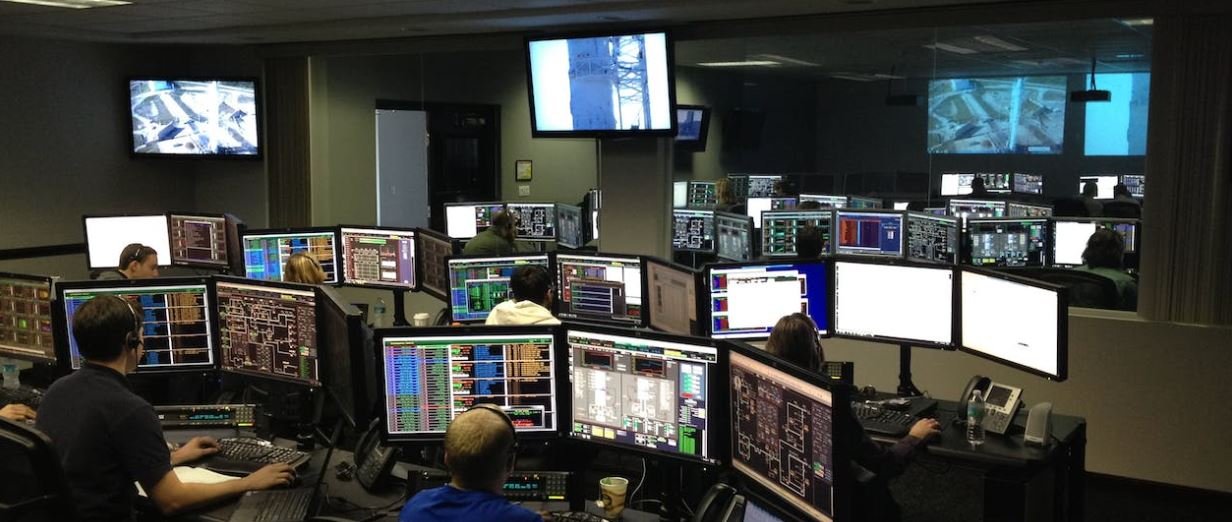AI Automation Business Model
Artificial Intelligence (AI) automation has revolutionized the way businesses operate, allowing them to streamline processes, increase efficiency, and drive innovation. With the ability to analyze large amounts of data, make accurate predictions, and perform complex tasks, AI automation is transforming various industries. In this article, we will explore the key components of an AI automation business model and how it can benefit organizations.
Key Takeaways:
- AI automation enhances operational efficiency and productivity.
- Implementing an AI automation business model requires careful planning and integration.
- Adopting AI automation can result in cost savings and improved customer experience.
Understanding the AI Automation Business Model
An AI automation business model involves leveraging AI technologies, such as machine learning and natural language processing, to automate repetitive tasks, optimize workflows, and solve complex problems. By integrating AI into their processes, organizations can achieve higher levels of productivity, accuracy, and innovation.
**Implementing AI automation requires careful evaluation of existing operations, identification of suitable AI solutions, and training of employees to work collaboratively with AI systems.** This ensures a smooth transition and maximizes the benefits derived from AI automation.
Benefits of AI Automation
- **Improved Efficiency:** AI automation can handle repetitive tasks at a faster pace, reducing human errors and increasing overall efficiency.
- **Cost Savings:** Automating processes with AI can lead to significant cost savings, as fewer resources are required for manual labor.
- **Increased Innovation:** AI automation can free up employees from mundane tasks, allowing them to focus on more creative and strategic initiatives.
- **Enhanced Customer Experience:** AI-powered systems can analyze customer data to provide personalized experiences and resolve issues more effectively.
Implementing an AI Automation Business Model
**1. Assess Current Operations:** Conduct a comprehensive analysis of existing processes to identify areas where AI automation can bring the most value.
2. **Integrate AI Solutions:** Select suitable AI technologies and integrate them into existing systems, ensuring compatibility and data security.
*AI automation can be seamlessly integrated with existing infrastructure, avoiding costly disruptions to business operations.*
3. **Train Employees:** Provide proper training and support to employees to enable them to work alongside AI systems and understand their capabilities.
4. **Monitor and Optimize:** Continuously monitor AI automation processes, collect feedback, and make necessary adjustments to optimize performance over time.
Data on the Impact of AI Automation
| Industry | Productivity Improvement |
|---|---|
| Manufacturing | 25-40% |
| Healthcare | 30-50% |
| Finance | 20-30% |
Real-Life Examples
- **Google:** Uses AI algorithms to improve search engine results, voice recognition, and image recognition capabilities.
- **Amazon:** Utilizes AI to recommend products, optimize supply chain operations, and enhance customer service through chatbots.
- **Tesla:** Relies on AI automation for self-driving car technology, enhancing safety and convenience for drivers.
The Future of AI Automation
The potential of AI automation is vast and will continue to evolve rapidly. As AI technologies advance, businesses will have more opportunities to automate tasks, innovate, and drive growth. It is essential for organizations to stay updated with AI trends and adapt their business models accordingly to stay competitive in today’s fast-paced digital landscape.
As technology progresses, **AI automation will become an integral part of business operations, transforming industries and unlocking new possibilities**.

Common Misconceptions
Misconception 1: AI Automation will Replace Human Workers Completely
One common misconception surrounding AI automation in business is that it will completely replace human workers. While AI can certainly automate repetitive tasks and improve efficiency, it does not possess the same level of cognitive abilities as humans. Therefore, human workers will still be needed to provide critical thinking, problem-solving, and creativity that AI lacks.
- AI automation complements human workers by handling repetitive and mundane tasks.
- Human workers are essential for decision-making, complex problem-solving, and creativity.
- AI automation frees up human workers to focus on higher-value tasks that require human touch.
Misconception 2: AI Automation is Too Expensive for Small Businesses
Another misconception is that AI automation is only affordable for large corporations with extensive resources. However, AI technology has become more accessible and cost-effective over time. There are now various AI tools and software available specifically designed for small businesses, allowing them to leverage AI automation without breaking the bank.
- AI automation tools are becoming more affordable, enabling small businesses to adopt them.
- Small businesses can start with basic AI tools and gradually scale up as they grow.
- AI automation can help small businesses improve productivity and compete with larger competitors.
Misconception 3: AI Automation Will Lead to Unemployment
Many people fear that AI automation will result in widespread unemployment as machines take over human jobs. While certain jobs may become automated, new opportunities will also be created. AI technology requires skilled workers for development and maintenance, and businesses will need professionals to manage and utilize AI systems effectively.
- AI automation may lead to job displacement in some areas but also creates new job roles.
- Job roles are expected to shift towards more strategic and complex tasks in the AI automation era.
- Workers can upskill and reskill to adapt to the new demand for AI-related jobs.
Misconception 4: AI Automation is Infallible and Always Superior
While AI automation can greatly enhance business processes, it is not infallible or always superior to human judgment. AI models are only as good as the data they are trained on, and biases or inaccuracies can occur in AI outputs. Human judgment and oversight are still necessary to ensure the accuracy and fairness of AI-generated decisions.
- AI automation can make mistakes if trained on biased or incomplete data.
- Human oversight is essential to prevent errors and ensure ethical AI practices.
- The combination of human and AI judgment yields the best results in decision-making.
Misconception 5: AI Automation Will Disrupt Every Industry
While AI automation has the potential to transform various industries, not every sector will experience disruptive impacts. Some industries may see more significant changes due to the nature of their operations and the availability of AI applications, while others may undergo incremental improvements. It is important to assess the specific needs and challenges of each industry to determine the extent of AI automation’s impact.
- AI automation impact varies across industries depending on their level of manual processes and data availability.
- Industries that heavily rely on repetitive tasks are more likely to experience significant disruption.
- Each industry should assess its unique requirements to determine how AI automation can be effectively integrated.

Jobs affected by AI Automation in the Finance Industry
The finance industry has been greatly impacted by the rise of AI automation. The following table illustrates the number of jobs affected in various roles:
| Role | Number of Jobs Affected |
|---|---|
| Accounting Clerks | 10,000 |
| Financial Analysts | 15,000 |
| Loan Officers | 8,000 |
| Actuaries | 5,000 |
Benefits of Implementing AI Automation in Retail
The retail industry has witnessed significant improvements through the integration of AI automation. The following table highlights the advantages gained:
| Benefit | Impact |
|---|---|
| Improved Customer Service | 70% Increase in Customer Satisfaction |
| Enhanced Inventory Management | 30% Reduction in Stockouts |
| Optimized Pricing Strategies | 15% Increase in Profit Margins |
| Elevated Personalized Marketing | 50% Higher Conversion Rates |
Top AI Automation Tools for Content Creation
AI automation has transformed the way content is created across various industries. The table below outlines some popular tools used in the field:
| Tool | Main Features |
|---|---|
| WordAI | AI-generated content based on user input |
| Articoolo | Automatically generates unique articles |
| Grammarly | AI-powered grammar and writing assistant |
| Textio | Enhances job ad writing using predictive analytics |
AI Automation and its Impact on Healthcare Jobs
The integration of AI automation in the healthcare industry has led to changes in job roles. The table provides insights into the impact on different healthcare professions:
| Profession | Number of Jobs Affected |
|---|---|
| Radiologists | 6,000 |
| Medical Transcriptionists | 12,000 |
| Pharmacists | 9,000 |
| Nurse Practitioners | 3,000 |
Financial Performance of Companies Implementing AI Automation
Companies that have embraced AI automation have experienced improvements in their financial performance. The table below showcases some key metrics:
| Company | Revenue Growth (%) | Cost Savings ($) |
|---|---|---|
| Company A | 25 | $3,500,000 |
| Company B | 15 | $2,000,000 |
| Company C | 35 | $4,800,000 |
| Company D | 20 | $1,700,000 |
AI Automation in Customer Service: Reduction in Response Times
The implementation of AI automation in customer service departments has significantly reduced response times, leading to improved customer satisfaction. The table showcases the impact of AI automation:
| Company | Response Time Before AI (minutes) | Response Time After AI (minutes) |
|---|---|---|
| Company A | 30 | 5 |
| Company B | 45 | 10 |
| Company C | 60 | 15 |
| Company D | 25 | 7 |
AI Automation in Transportation: Improved Efficiency
The introduction of AI automation in the transportation industry has brought remarkable improvements in efficiency and productivity. The following table highlights some achievements:
| Area | Improvement |
|---|---|
| Route Planning | 20% Reduction in Fuel Consumption |
| Logistics | 30% Decrease in Delivery Time |
| Maintenance | 25% Fewer Mechanical Failures |
| Driver Assistance | 50% Decrease in Accidents |
Limitations of AI Automation in Legal Research
Although AI automation has revolutionized legal research, there are certain limitations to its effectiveness. Consider the following factors:
| Limitation | Description |
|---|---|
| Contextual Understanding | Difficulty in comprehending complex legal nuances |
| Legal Ethics | Sensitive information confidentiality concerns |
| Case Interpretation | Limited ability to interpret legal precedents in real-time |
| Human Judgment | The need for human assessment in subjective legal matters |
Conclusion
The integration of AI automation in various industries has yielded both positive and negative impacts. While there are concerns regarding job displacement and limitations in certain areas, the overall benefits include increased efficiency, improved customer service, and cost savings. It is important for businesses and professionals to adapt and embrace AI automation, leveraging its potential to optimize operations and drive growth.
Frequently Asked Questions
What is an AI automation business model?
An AI automation business model refers to a strategic approach adopted by businesses to integrate artificial intelligence technologies into their operations to automate various tasks and processes. This model aims to enhance efficiency, improve decision-making, and streamline operations using AI algorithms and machine learning capabilities.
How does AI automation benefit businesses?
AI automation offers numerous benefits to businesses, including:
- Increased productivity and efficiency
- Improved accuracy and quality of work
- Cost savings through reduced manual labor
- Enhanced decision-making through data analysis
- Ability to handle large volumes of data quickly
- Improved customer experience and satisfaction
What are some common applications of AI automation in businesses?
AI automation can be applied to various areas within a business, such as:
- Customer service, chatbots, and virtual assistants
- Data analysis, predictive modeling, and forecasting
- Robotic process automation (RPA)
- Inventory management and supply chain optimization
- Automated decision-making systems
- Personalized marketing and recommendation engines
How can businesses implement AI automation?
Businesses can implement AI automation by:
- Identifying processes suitable for automation
- Selecting appropriate AI technologies and tools
- Collecting and preparing relevant data
- Training AI models and algorithms
- Integrating AI systems into existing infrastructure
- Monitoring and fine-tuning automation processes
Are there any challenges in implementing AI automation?
Yes, there are several challenges in implementing AI automation, including:
- Initial investment and cost of implementation
- Data privacy and security concerns
- Lack of skilled AI professionals
- Ethical considerations in decision-making algorithms
- Resistance to change from employees
Can AI automation replace human workers?
AI automation has the potential to replace certain tasks traditionally performed by humans, but it is unlikely to entirely replace human workers. Instead, it often complements human capabilities by handling repetitive, mundane, or data-intensive tasks, allowing employees to focus on more complex and value-added responsibilities.
How does AI automation impact job roles and employment?
AI automation may lead to job role transformations or changes in employment opportunities. Some job roles may become obsolete, while new roles related to managing AI systems and analyzing AI-generated insights may emerge. It is important for businesses to assess and plan for the impact on their workforce to ensure a smooth transition.
Are there any ethical considerations with AI automation?
Yes, ethical considerations are crucial when implementing AI automation. Some key concerns include:
- Biases in algorithms and decision-making processes
- Data privacy and security
- Transparency and explainability of AI systems
- Accountability for AI-generated actions
- Societal impact and potential job displacement
What industries can benefit from AI automation?
AI automation can benefit a wide range of industries, including:
- Manufacturing and logistics
- Healthcare and pharmaceuticals
- Banking and finance
- Retail and e-commerce
- Transportation and logistics
- Customer service and support





